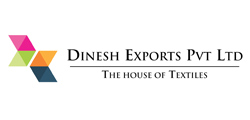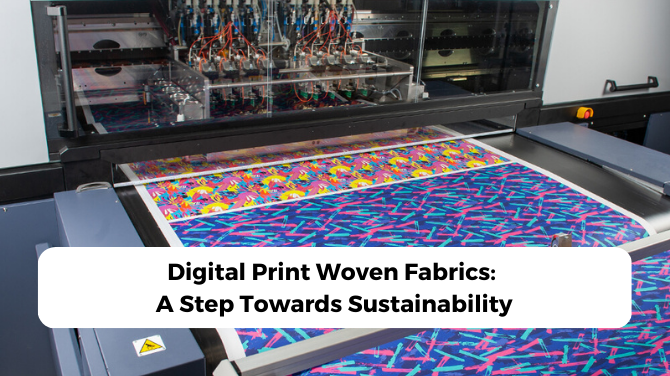India, being the second-largest cotton producer in the world, has been in the forefront of cotton textile production. The country has a long history of cotton textile production and today it boasts of a vibrant domestic and export market for cotton textiles. A number of Indian companies are active in the sector, all catering to the domestic, export and global markets. The textile industry in India is one of the most important sectors of the Indian economy. It is also an important input sector as it accounts for around 6% of the GDP and 14% of the total employment in India. The textile industry produces a wide range of products including yarn, cloth, bags and industrial cotton. It is mainly divided into four categories: Cotton textiles include fabrics such as bedsheets, underwear and hosiery. Wool textiles include fabrics such as carpets, blankets and clothes. Synthetic and mixed textiles include fabrics like artificial silk and rayon. The sectors have been developing rapidly at a rate of more than 8% per annum on average during the last five years. In India, there are high levels of investments in research infrastructure, technological advancement focused on improving the woven fabric industry.
The Indian subcontinent is one of the oldest places where this craft was practiced. There are several weavers who have been practicing this craft for generations. Today, it is also being practiced in other parts of the world as well.
Top Sustainable Woven Fabrics
- Cotton
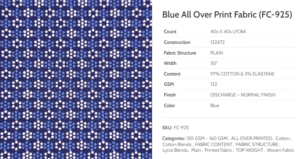
Sustainable fabrics are the way of the future. They help reduce waste, conserve water and use less energy in production. Cotton, for instance, is a heavy consumer of pesticides and fertilizers meaning that it requires a lot of water and chemicals to grow. On the other hand, organic cotton is grown without using any pesticides or fertilizers meaning that it requires much less water in production than conventional cotton.
View woven cotton fabrics.
- Hemp
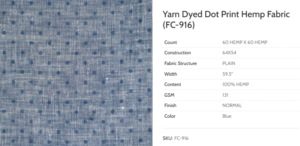
Hemp is one of the few plants that can be used to produce a textile fabric. It is highly durable, naturally fireproof and can be used to make a range of products such as clothing, insulation, paper etc.
For Hemp fabrics, contact us.
- Linen
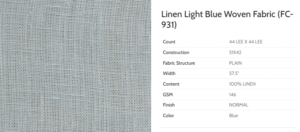
Linen is a natural, sustainable, and luxurious fabric. It is made from flax plants that grow throughout the world and is a favorite for those who are looking for clothes that are ethically sourced, environmentally conscious, and sustainable.
Buy linen fabrics from us.
- Tencel
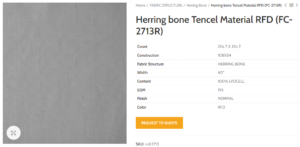
Tencel is a brand of viscose fiber. It is made out of pulp from eucalyptus trees, which makes it an eco-friendly alternative to silk, wool, and cotton. It’s been known for its softness and durability for years now because of the long distance and millions of steps it takes to produce every pound. Tencel comes in a variety of colors.
Whole range of Tencel fabrics, request samples here.
Top sustainability certifications
- What is BCI- Cotton certification?
Certified organic cotton is a crop that has not been exposed to pesticides or insecticides. Cotton plants are grown without artificial chemicals, and the cotton is ginned without chemicals.
- What is OEK-Tex certification?
Oeko-Tex labels and certificates confirm the human-ecological safety of textile products and leather articles from all stages of production (raw materials and fibres, yarns, fabrics, ready-to-use end products) along the textile value chain.
- What is Fair Trade certification?
When products are Fairtrade Certified it means that they were produced in accordance with Fairtrade International’s rigorous environmental, economic and social standards. This is independently verified through regular audits by an accredited third-party auditor, FLOCERT.
- What is OCS certification?
The Organic Content Standard (OCS) applies to any non-food product containing 95-100 percent organic material. It verifies the presence and amount of organic material in a final product and tracks the flow of the raw material from its source to the final product.
- What is GRS certification?
The GRS is an international, voluntary, full product standard that sets requirements for third-party certification of recycled content, chain of custody, social and environmental practices and chemical restrictions.
- What is GOTS certification?
GOTS certification guarantees: environmentally friendly production and processing processes. respect and improvement of working conditions. promotion of the use of fibres from organic agriculture. prohibition of hazardous inputs such as toxic heavy metals, aromatic solvents etc.

